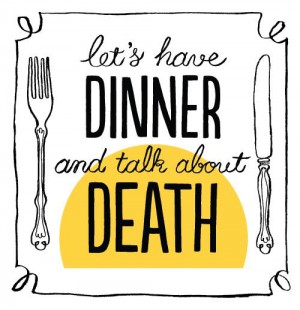Poop, Death and Other Health Taboos from Ideo’s Paul Bennett
Main Article Content
Abstract
Poop. Hair removal. Amputation. Skin lesions. Erectile Dysfunction. Death. Those are some of the few taboos remaining in health care, according to Paul Bennett, chief creative officer of the global design company IDEO. The San Francisco-based Brit has made a career by chipping away at some of the stigma surrounding several items on this list—encouraging colon cancer screenings through educational product design and removing visible signs of handicap from the homes of amputees. Now Bennett is attempting to kill all taboo tied to the condition that he jokes as having “100 percent market penetration”: death.
The designer, now associated with the widely-praised, sensory-engaging Zen Hospice Project, recently addressed a group of health technology entrepreneurs at MATTER, a shared-office hub in Chicago’s Merchandise Mart. “It’s one of the biggest taboos to stare down and design for,” Bennett told the crowd, sharing that the inspiration for his newest interest was his father’s end of life experience. He died 13 years ago from bone cancer. “He was obsessed with maintaining his dignity, and he said ‘if I can’t wipe my own ass, turn me off please.’” Bennett’s father asked family members not to visit in his last days, as he did not want to be remembered in such ill health. “He was being a designer, trying to design the one thing he had left– his death,” Bennett said.
Bennett also recognized that this death could have been easier, and less traumatic for his mother. That experience is one from which he said she will recover. Bennett knew then that his father’s death should not have had to be that way.
In the years since, however, a remarkable shift has occurred. “Media is suddenly making death a very hot topic,” he said. “All of the sudden, we’re asking ‘who was I, who am I, and what will I be?” It’s the responsibility of our culture and social development to help others answer those questions. Bennett urged those with the talent to do so to help individuals make deaths be as individual as their lives. However, if dying remains so taboo, most of us will remain uncomfortable both learning and sharing what an ideal end of life experience would mean to them.
Bennett offered the following advice to physicians and other care providers discussing end of life issues with patients, for business people working in death-related fields and for family members facilitating important conversations about the topic. His perspective as a designer creatively reframes a familiar- and universal- problem.
Principles in Potentially Taboo Spaces: 1) Confront your own bias – One man’s taboo is another man’s normal – What is taboo is context-specific and it changes with the times 2) Expose and normalize –Listen acutely to what is being said and not said 3) Be vulnerable –Where am I? –Can I change my viewpoint? 4) Embrace the emotional –How do people feel here? –How do they feel about their feelings? 5) Use humor –How do I lighten the heaviness? –How do I create a safe space to laugh? 6) Meet people where they are –How do I engage people in ways they are ready to take in? –How do I help them take small bites?

